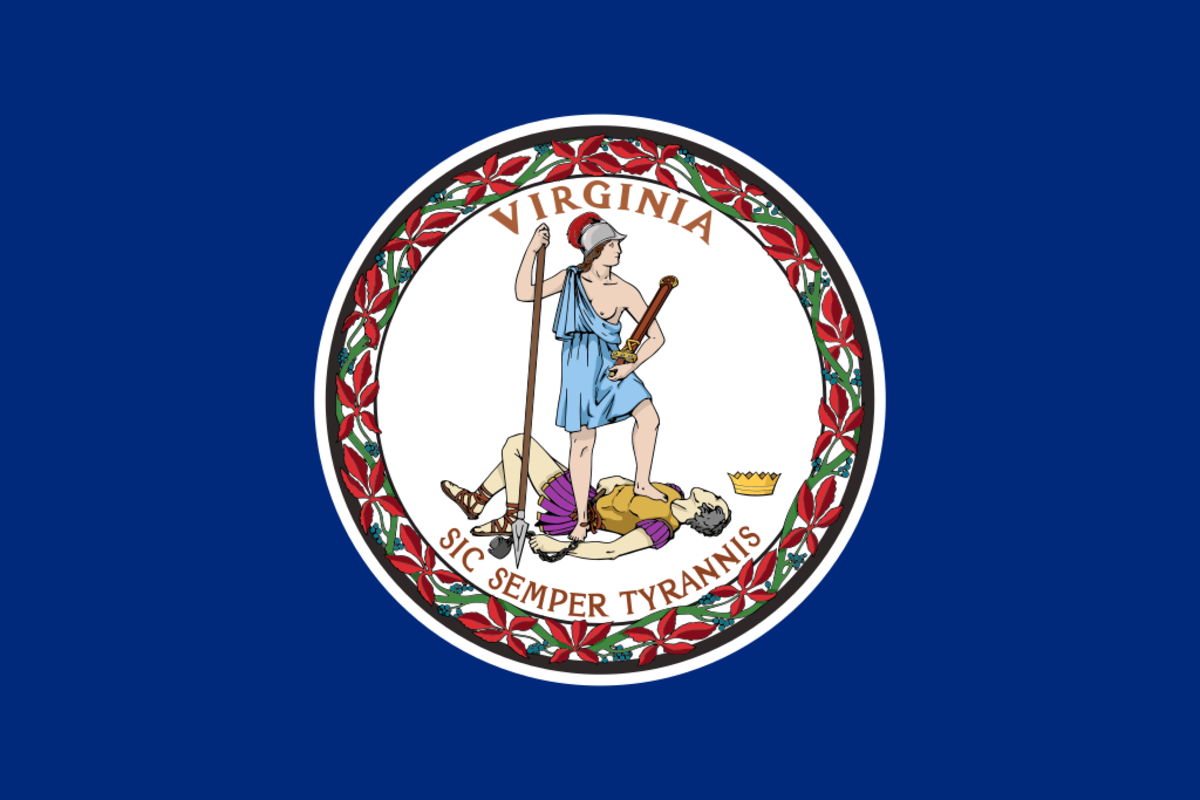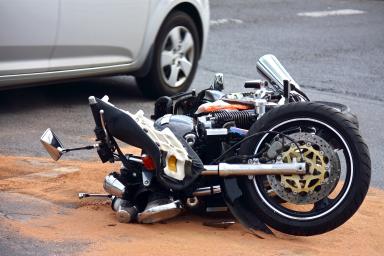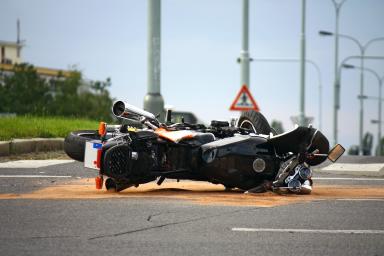Virginia Motorcycle Laws

In 2022, the Virginia Department of Motor Vehicles and Highway Safety Office recorded a total of 2,053 motorcycle crashes, which formed 1.7% of the state’s total accidents for that year. Of these motorcycle accidents, 1,573 resulted in the injuries of 1,677 riders, while 113 were fatal crashes that led to the deaths of 111 individuals. Fatalities included 108 drivers and three passengers. Additionally, there were 762 recorded serious injuries, accounting for 10.7% of the state’s total.
Among these recorded accidents, there were 159 instances where the riders involved were driving at high speeds, while there were 125 occurrences involving tailgating. Other contributing factors include improper lane changes and passing, as well as failure to yield the right-of-way. 86.5% of the state’s fatal motorcycle crashes occurred on non-interstate roads, while 64.9% involved multiple vehicles.
Because motorcycle accidents continue to occur on the state’s roadways and highways, Virginia’s government and law enforcement agencies continue to regulate traffic flow and preserve the safety of riders and passengers using various traffic ordinances. The state also has different insurance and legal guidelines that help motorcycle accident victims prepare for the aftermath of a crash as they pursue damages against at-fault drivers.
Virginia Motorcycle Helmet and Safety Gear Requirements
In Virginia, all motorcycle operators and passengers are required to wear helmets that fall under the safety and quality standards of the United States Department of Transportation, the Snell Memorial Foundation, or the American National Standards Institute, Inc. State laws also dictate that motorcyclists must wear safety glasses, goggles, or face shields when operating their vehicle.
Helmets are not required for those riding three-wheeled motorcycles with enclosed bodies, non-removable roofs, and windshields. The same applies to operators and passengers of motorcycles with wheels that are eight inches or less in diameter.
The Virginia Department of Transportation also encourages people to wear additional safety gear when riding a motorcycle. This gear includes clothing made of leather or special synthetic material, which can help protect a rider against abrasion if a crash happens. Riders are encouraged to wear brightly colored clothing or reflective vests to improve their visibility to other motorists at night.
In terms of handwear, motorcyclists must have gauntlet-type gloves that keep the air out of their sleeves or leather gloves that help maintain a firm grip on a motorcycle’s controls. They must have leather boots or athletic shoes that protect the ankles for footwear.
Obtaining a Motorcycle License in Virginia
Only motorcyclists who have a Class “M,” “M2,” or “M3” designation on their driver’s license are allowed to operate a motorcycle within Virginia. Those with “6” designated under “Restriction” in their license can operate only a motorcycle, not a motor vehicle. Each “M” designation dictates the type of motorcycle that a rider can operate:
Class M - both two- and three-wheeled motorcycles
Class M2 - only two-wheeled motorcycles
Class M3 - only three-wheeled motorcycles
Riders who wish to add a Class M designation to their license and are 18 years or older must do the following to obtain their designation:
Pass the vision screening
Pass the motorcycle knowledge exam
Have a motorcycle learner’s permit for up to 30 days
Pass the motorcycle road skills test
Riders who are under the age of 18 must also follow the steps above to get their Class M designation. However, they must hold a motorcycle learner’s permit for up to 9 months instead of 30 days as a requirement.
Any rider aged 18 and above who has completed the Virginia Rider Training Program will be given a course completion certificate and will no longer have to take the motorcycle knowledge or road skills exams. Those under 18 will be exempt from taking the exams upon completing the program for only one year, starting from the date of the course’s completion.
For riders aged 19 and above, their course completion certificate will grant them a temporary M2 or M3 designation, valid for 30 days. After this period has elapsed, they must visit a DMV customer service center to have their designation officially added to their license if they wish to continue operating a motorcycle. They must also bring their certificate of completion, which is valid for up to one year from the completion date.
Virginia Police Pursuit Policies
Currently, Virginia does not require law enforcement agencies to have statutory pursuit or emergency response policies. Its laws, however, do grant police personnel the authority to pursue and apprehend any person fleeing from arrest within the territory of the Commonwealth, with or without a warrant.
Despite the lack of statutory requirements for pursuit policies, certain law enforcement agencies in the state follow and enforce their policies when chasing potential suspects. For example, the Prince William County Police Department only allows its personnel to chase and apprehend individuals who have committed or are suspected of committing felony offenses such as murder and robbery. Additionally, the department does not allow officers to pursue suspects fleeing on a motorcycle, motorbike, moped, go-cart, or all-terrain vehicle.
Another agency that has its own pursuit policy is the Fairfax County Police Department, where officers must always ensure the safety of the public when chasing a suspect. They must also terminate a pursuit once it begins posing a greater danger to other motorists and pedestrians. In addition, they are prohibited from pursuing motorcycles due to the greater risks of injury involved and because the capabilities of motorcycles often exceed those of pursuit-rated vehicles.
Lastly, even if the state allows officers to pursue a vehicle that refuses to stop regardless of the reason, the Virginia State Police must always take the following factors into account when initiating a pursuit:
The suspect’s evasive tactics
Potential pursuit speeds
Weather, visibility, and road conditions
The time, location, and day of the pursuit
The mechanical capabilities of the vehicles involved
The seriousness of the suspect’s offense
Other means of apprehension (such as issuing a warrant and apprehending the suspect at a later time after they have been identified)
Virginia Speed Limits
Virginia has several speed limits to prevent motorists from overspeeding and potentially causing an accident. The state’s General Assembly is responsible for establishing statutory speed limits, and it grants authority to cities, towns, and certain counties, as well as the head of the Virginia Department of Transportation, to impose limits that fall under the maximum ones allowed in the state.
According to state laws and the Virginia Driver’s Manual, the state’s defined speed limits are:
25 mph within school zones, business districts, and residential areas
35 mph on unpaved roads
55 mph on interstate highways, certain limited access highways with divided roadways, non-limited access highways with four or more lanes, and all state primary highways
This limit is reduced to 45 mph for trucks, tractor trucks, and house trailers, as well as any motor vehicles that are used to tow a self-propelling vehicle or transport property
70 mph (as indicated by properly placed signs) on interstate highways and high-occupancy vehicle lanes, along with multi-lane, divided, and limited access highways
School buses must also follow a speed limit of 45 mph (or the minimum allowable speed, whichever is greater) on roadways with a speed limit of 55 mph or less. They can drive up to 60 mph on interstate roads and other highways with a speed limit above 55 mph.
Any driver who exceeds a given speed limit will be fined and/or imprisoned, and they will also have their license suspended. Motorists who drive 20 mph above any speed limit or at 85 mph will be charged with reckless driving, which results in additional penalties. Those who end up causing another person’s death with their license revoked or suspended at the time of the offense will be charged with a felony.
Virginia Lane Sharing and Right-of-way Ordinances
Virginia traffic laws prohibit motor vehicles from driving abreast of another vehicle on a lane meant for only one vehicle unless they are overtaking and passing such a vehicle. Those who violate this traffic rule will be charged with reckless driving. However, two motorcycles are not prohibited from traveling two abreast in such a lane. Additionally, motor vehicles may travel in the same lane as a bicycle, a moped, an electric bike, or an electric personal assistive mobility device.
Virginia also has several right-of-way ordinances to ensure that traffic flows smoothly without endangering motorists. These ordinances are as follows:
When two vehicles approach an uncontrolled intersection at approximately the same time, the car on the left must yield the right-of-way to the vehicle on the right.
When approaching an intersection controlled by a stop sign, a vehicle must stop before a clearly marked stop line, the crosswalk on the near side of the intersection, or the nearest point where the driver has a clear view of incoming traffic, after which the vehicle must yield to others approaching the highway from the opposite direction.
When a vehicle turns left into a driveway, alleyway, or private road, it must first yield to other vehicles approaching from the other direction if they are close enough to constitute a potential hazard.
When approaching a circle, a vehicle must yield to all other vehicles already within the circle.
When approaching an uncontrolled “T” intersection, the vehicle on the highway that intersects but does not cross the other highway must first yield to any vehicles on the other highway.
All motorists must yield to emergency vehicles (including ambulances, fire engines, and rescue vehicles) that have their emergency lights and sirens activated by maneuvering and stopping at the nearest edge of the highway and remaining there until all emergency vehicles have passed or until they are given the signal to proceed
Virginia Motorcycle Insurance Requirements
Motorcyclists in Virginia must get liability coverage for their vehicles before purchasing license plates or driving. Liability coverage will be used to address costs related to the medical treatment, funerary arrangements, and damaged property of other motorists in case the insurance owner causes a crash.
According to the Virginia DMV, the state’s minimum liability coverage amounts are:
Alternatively, motorists in the state can fulfill their requirements for obtaining license plates by paying an uninsured motor vehicle fee worth $500. However, this will only allow a motorist to operate an uninsured vehicle at their own risk. The fee will expire along with a driver’s registration and must be renewed. Additionally, other drivers may report an uninsured vehicle as such when reporting an accident to the DMV.
Those who fail to purchase liability coverage or have not paid the UMV fee will have their driving license and privileges suspended. They must pay a noncompliance fee worth $600 and a reinstatement fee and file an SR-22 form with the DMV for up to three years if they wish to have their license and driving privileges reinstated.
Virginia Is an At-fault State for Insurance Claims
Virginia follows at-fault guidelines for insurance claims related to motor vehicle accidents. This means that any driver who causes an accident will be financially responsible for damages to the victims'. In these cases, drivers will use their liability coverage to pay for the losses of those involved. Liability coverage also applies if the insurance owner lends their vehicle to a family member or acquaintance and the person operating the vehicle causes an accident.
In addition to the offending driver’s liability coverage, motorcycle accident victims can use any applicable insurance policies to address part of their losses. These options can include collision coverage, which allows the insurance owner to pay for the repairs or replacement of a damaged vehicle.
How Much Can Someone Sue for a Motorcycle Accident in Virginia?
Virginia does not limit the total compensatory damages that motorcycle accident victims may recover in a claim or lawsuit. Because of this, victims may recover full compensation for their losses from at-fault parties. Under the state’s laws, recoverable compensatory damages can include the following:
Expenses for present and future medical treatment and rehabilitation
Any present or anticipated loss of income due to injury
Funeral expenses if the victim passes from their injuries
Mental anguish and distress
Loss of companionship
If the court determines that the at-fault party in an accident acted with outrageous conduct by maliciously intending to injure the plaintiff or willfully disregarding their safety, punitive damages may also be awarded. However, Virginia limits the maximum amount of punitive damages that can be recovered in an accident case to $350,000.
Virginia Is a Pure Contributory Negligence State for Motorcycle Accident Lawsuits
Virginia follows the rule of pure contributory negligence for motorcycle accident lawsuits, meaning that a plaintiff will be barred from recovering any damages if they are partially liable for an accident, even if the responsible party is 99% at fault. In short, an at-fault driver must be 100% liable if a victim wishes to pursue and recover compensation from them in a lawsuit.
However, the last clear chance doctrine may apply in certain accident cases where a plaintiff is partially at fault. Under this doctrine, a victim may still recover losses from an at-fault driver if they can prove in court that the latter party had a final opportunity to avert an accident and avoid causing injury through reasonable care but failed to do so.
If multiple liable parties are involved in an accident, a defendant who has paid part of a victim’s losses may sue the other responsible parties to recover a portion of the money they have paid.
Virginia Statute of Limitations for Motorcycle Accidents
The statute of limitations for motorcycle accident cases in Virginia is two years, starting from the date of the accident in question. Victims, their relatives, and dependents must file a claim or lawsuit against at-fault parties within this time frame. If a plaintiff tries to file after two years, their claim or lawsuit will likely be dismissed. If a motorcycle accident victim dies from injury before they can file a lawsuit, their dependents or relatives can file a wrongful death claim within two years from the date of the victim's death.
If a plaintiff cannot file a claim or a lawsuit, Virginia’s statute of limitations will be “tolled” or delayed. This occurs if the plaintiff is a minor or is deemed mentally incompetent due to a disability. In these cases, the statute of limitations will only begin once the plaintiff has reached the age of 18 or recovered from their disability.
Additionally, the statute can begin at a different time for plaintiffs who only find out about injuries or complications caused by an accident at a later time. For such cases, the discovery rule applies, wherein the statute of limitations begins when a plaintiff discovers or should have reasonably discovered an accident-related injury or complication.
Legal Resources for Virginia Motorcycle Accident Victims
Virginia State Bar
The Virginia State Bar, an administrative state agency of the Supreme Court of Virginia, offers legal assistance to state residents. People can visit its Lawyer Referral Service section to find specific attorneys to consult on different matters, including personal injury. For a fee of $35, potential plaintiffs can speak with an attorney for a maximum of 30 minutes. The VSB’s website also has a section where residents can file complaints against lawyers concerning potential misconduct and unauthorized law practice.
Virginia Department of Motor Vehicles - Reporting Crashes
Those involved in a motor vehicle accident can file a report at the Virginia DMV’s website. Each report must be submitted along with an information request form and a payment of $8 via mail at the Customer Records Work Center or by fax at (804) 367-0390. Those who choose the latter must also submit a license, ID card, and record payment authorization form. Alternatively, state residents can visit a DMV’s customer service center to submit a report in person, with payments made through cash, credit card, money order, or check.
Virginia’s Judicial System - Case Status and Information
People with pending cases can visit the website of Virginia’s Judicial System to search for updates and information concerning their specific cases. Website visitors can look for criminal and civil cases under the state’s Supreme Court, the Court of Appeals, general district courts, and select circuit courts. In addition, they can visit the website to make payments for traffic tickets and other infractions in both circuit and general district courts.
Expertise.com StaffAuthor
Step into the world of Expertise.com, your go-to hub for credible insights. We don't take accuracy lightly around here. Our squad of expert reviewers, each a maestro in their field, has given the green light to every single article you'll find. From rigorous fact-checking to meticulous evaluations of service providers, we've got it all covered. So feel free to dive in and explore. The information you'll uncover has been stamped with the seal of approval by our top-notch experts.


![¿Cuál es la indemnización promedio de las demandas por accidentes de moto? [2023]](https://images.ctfassets.net/k00sbju4hbzq/590XSDSoqNVs6XSMNY5s3G/a969ee3bedaaf9016cec601fc30f495b/average_motorcycle_accident_settlement.jpg?fit=fill&w=384&q=75)

